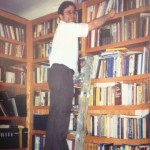The following article appeared in Image Magazine, as part of a Torah Dedication in the Rabbi’s honor. Published only 4 months before his passing, the article provides a brief biography of the Rabbi’s life.
In 1982, the Man of the Year in the community of West Deal, New Jersey, was Rabbi Ezra Labaton. In August of that year, Rabbi Labaton was invited to become the full-time spiritual leader of Conregation Magen David of West Deal. Thirty years later, Rabbi Labaton remains a beacon not only to his congregants, but to the entire Syrian- Sephardic community.
Born and raised in Brooklyn, he attended elementary school at Magen David Yeshivah and high school at Flatbush Yeshivah. He studied under Hakham Baruch Ben Haim zl, as a young man before going on to get his semiha (ordination) from Yeshiva University. It was there that he studied under the renown Rabbi Joseph Soloveitchik z”l, (the Rav), whose teachings have guided Rabbi Labaton throughout his tenure.
His experience, rooted in our Halabi traditions, yet steeped in the rigorous method of one of the greatest Torah scholars of the past century, has enabled Rabbi Labaton to relate to his students the essential values of the Torah in his own personal way. Not only does he reveal to us the warmth and beauty of the mitzvot, but at the same time he makes obvious the Torahs relevancy and practicality in dealing with the challenges of our daily life. In so doing, he brings together the tools of history, science and philosophy as no other scholar in our community can.
Yet, neither his vast knowledge nor his skill at communication is his greatest asset. Rather, his greatest strengths are his humility, his sincerity, his compassion, his courage and his determination to do the right thing. Though able to quote chapter and verse about the Divine imperative to perform sedaka umishpat (justice and righteousness), Rabbi Labatons most compelling argument for living a life true to these ideals is the way in which he conducts his own.
From the outset, he has demonstrated a care and concern for others and has encouraged his students to bring their Torah to others in a way that will positively impact their lives. Through healthy times and through an illness that would have devastated those with less faith and self-discipline, he has persisted; leading minyan every morning and afternoon when he is not in treatment, giving numerous classes each week both day and night and focusing our energies every Shabbat with his sermons. All of this energy, all of this commitment is delivered with a smile and a kind word, as if he had not a personal care in the world.
If that is not enough, in another month or so he will be defending his doctoral thesis on his way to a PhD. He is truly a marvel and for over 30 years has been an inspiration to thousands of people, who have incorporated into their own lives lessons learned not only by attending his lectures and classes, but simply by observing him.
Having had such an impact on us as individuals, it is no wonder that Rabbi Labaton has built a congregation, which is as inclusive and welcoming as one can find anywhere. The programs he has created have involved all ages. One of his first efforts was Young Magen David, which he established in order to channel the energies of our young men and women toward hesed and educational programs. Another was our young adult barbecue, where for years hundreds of young men and women made dinner at the synagogue their last activity of each summer weekend, leading to a number of marriages. He also organized our Senior Hafla, in which each summer buses of senior citizens came to the synagogue for a day of music and dancing.
He has also taught us to be concerned with those far away from us. Though not the only means, he has shown us that political activism is an important way in which we demonstrate our cause and concern for others. Through the years, he has organized programs and participation in lobbying efforts on behalf of Soviet Jewry, Ethiopian Jewry and Syrian Jewry. When a number of years later a new Sephardic congregation was born after war in Croatia, it was no accident that his students responded to the congregations needs and donated its first Sefer Torah, arriving in person to deliver it.”

